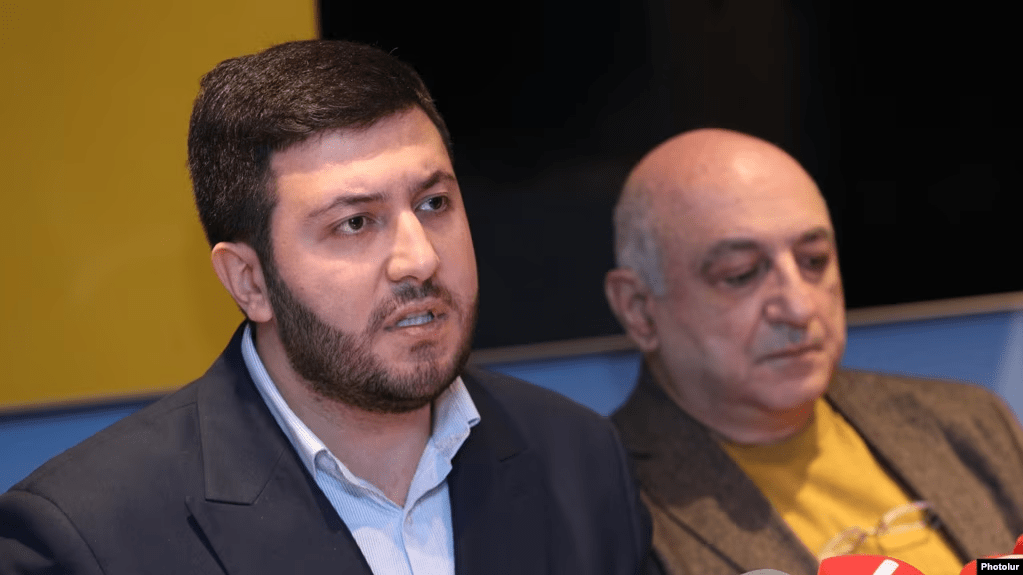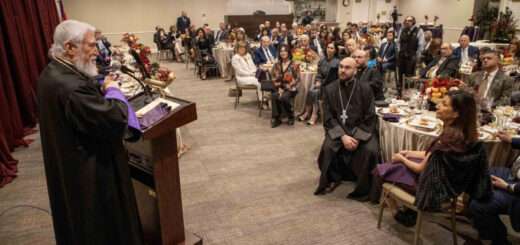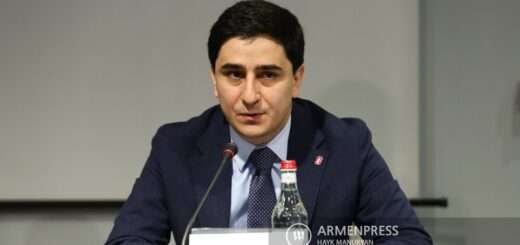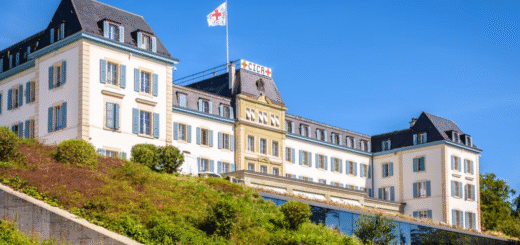The Armenian delegation was in the Azerbaijani capital at the weekend as part of people-to-people contacts arranged by the governments of the two South Caucasus states with the declared aim of advancing their “peace agenda.”
Four Azerbaijanis presented by Baku as civil society members visited Yerevan late last month. They included one of the government-linked Azerbaijani activists who participated in a nine-month blockade of Nagorno-Karabakh that preceded Baku’s September 2023 recapture of the region. Two other members of that delegation had hailed the Azerbaijani military offensive that forced Karabakh’s entire population to flee to Armenia. The Armenian authorities’ decision to not only let these individuals into the country but also have a senior official meet with them caused an uproar on social media.
Pashinian, who is blamed by his political foes for the fall of Karabakh, has repeatedly made clear that the Karabakh issue is closed for his administration. He again said in September that Yerevan will not press Baku to enable the Karabakh Armenians to return home.
“In the Armenian political arena, anyone who now speaks out against the Armenian-Azerbaijani settlement and the Armenian-Turkish settlement is either a foreign agent, a scoundrel or an apolitical idiot,” Areg Kochinian, the pro-government head of a Yerevan-based think-tank, charged during a joint news conference with the four other Armenians who visited Baku.
Opposition leaders and other critics of Pashinian maintain that Armenian-Azerbaijani agreements touted by him will not bring real peace. They say unilateral concessions made by Pashinian only encourage Baku to make more demands jeopardizing Armenia’s very existence as a viable state.
The Armenian delegation was received in Baku by Hikmet Hajiyev, Azerbaijani President Ilham Aliyev’s top foreign policy aid. In Kochinian’s words, Hajiyev asked it to assure Armenians that Azerbaijan “wants to build a comprehensive and long-term peace with Armenia.”
The delegation flew to Baku on as 23 Armenians, including eight former leaders of Nagorno-Karabakh, remained imprisoned in Azerbaijan. Boris Navasardian, another delegation member, said they were not allowed to visit any of the prisoners in jail.
“Visiting [them] was not a priority for us, even though we raised the issue in Yerevan,” said Navasardian. “It is important to us that there is progress on their return home.”
Citing Hajiyev, Navasardian spoke of ongoing negotiations regarding the release of at least some of the prisoners.
“The issue is being discussed and may receive a certain solution,” he said without going into details. “As for when, how, and what kind of solution there will be, we will probably see in the near future.”
The eight former Karabakh leaders captured during Azerbaijan’s 2023 military offensive went on trial in January. Earlier this month, an Azerbaijani prosecutor demanded life sentences for five of them and 20-year jail terms for two others.






